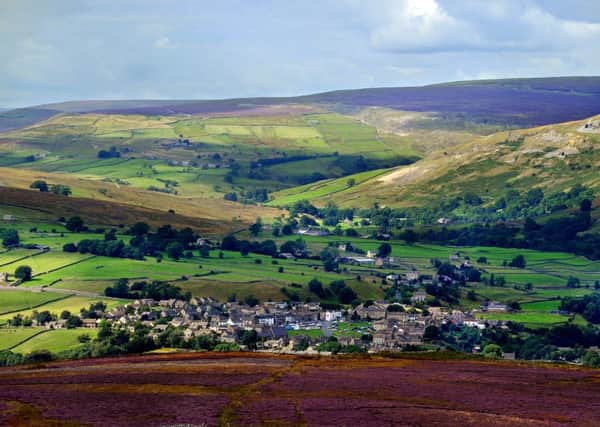Andrew Vine: Idyllic scenes mask a story of division and deprivation


It is that of deprivation, of run-down properties and a lack of opportunities, of people scraping by on wages that are too low, and struggling with often sparse services.
Wandering around Masham and Thirsk a few days ago, I was struck by the number of down-at-heel houses that wouldn’t look out of place in a blighted inner-city suburb, only a few moments’ stroll from the market squares in both towns.
Advertisement
Hide AdAdvertisement
Hide AdThey were a long way short of the mental picture most people carry of Dales communities, of picture-perfect rows of cottages with hanging baskets nestling in the breathtaking countryside.
But these houses with their rotting window frames and crumbling masonry bear witness to a gulf in Government spending that is as wide as the north-south divide, but gets far less attention.
It is the shamefully unfair imbalance between town and country, which sees our rural communities get a raw deal from a Conservative government that should be their champion.
But instead, they chase for votes in inner-city Labour constituencies where the vulnerability of their majorities was exposed by the Brexit referendum and has led Theresa May and her senior ministers to take their eye off the needs of the countryside.
Advertisement
Hide AdAdvertisement
Hide AdThe figures speak of how grossly unjust this is. An inner London council can expect to receive an average of £553 in Government funding per head of population. In a rural area, the average is £261.
Why? Why should the residents of Masham or Thirsk be considered as effectively worth half that of their counterparts in Hackney or Camden?
They have no lesser need of good schools or of care for the elderly, yet the rural areas cannot possibly be considered to be getting anything like a fair deal on these figures.
And matters might be about to get worse. In the next few weeks, the Commons will vote on the Local Government Finance Bill, aimed at giving councils more self-sufficiency by retaining the proceeds of business rates.
Advertisement
Hide AdAdvertisement
Hide AdThe big winners will be urban areas, which have the greatest number of businesses. Once again, the countryside appears to have been overlooked.
This institutional bias against rural areas can be traced back to the Tony Blair years, when after the 1997 landslide money was pumped into urban constituencies with the intention of cementing Labour majorities for years to come. To his discredit, David Cameron did nothing to redress the balance.
So who is fighting the corner of rural communities around the Cabinet table? It should be the Environment, Food and Rural Affairs Secretary, Andrea Leadsom, but there is precious little evidence of that.
The politician who was so vocal in her brief and doomed bid for the Conservative leadership, before her patent unsuitability made even her realise that she should withdraw, is the least visible occupant of her post in memory.
Advertisement
Hide AdAdvertisement
Hide AdThat in itself does not inspire confidence. Nor did last week’s Public Accounts Committee report which concluded that the Government had not done anything like enough to assess the impact of delayed subsidy payments on farmers and the rural community.
This was further evidence of the disregard for the countryside. Only weeks before, it was revealed that the national parks which do so much to generate income for rural areas from tourism are already being starved of funds and face further budget cuts. And we cannot yet know what the impact of leaving the EU will have on agriculture.
It all adds up to a picture of neglect. It is unthinkable that a city would be treated in this manner, not least because there would be an outcry from a mass of voters. Yet it seems there is an almost naïve belief in Government circles that the countryside will somehow take care of itself, that market towns will thrive and provide enough jobs, and that farmers will continue to work the land and care for the landscape.
Nobody in the Government can say they haven’t been warned of the rotten deal rural communities are getting.
Advertisement
Hide AdAdvertisement
Hide AdFour years ago, the Environment Select Committee produced a scathing report pointing out the “deeply unfair” state of affairs that saw the countryside paying more in council tax than urban areas, but getting less in Government grant and enduring much poorer public services.
Nobody listened then, but stirrings amongst up to 40 Conservative backbenchers pressing for a better deal might force Mrs May and the Chancellor, Philip Hammond, to take heed and start doing something in next month’s budget.
She came to office promising to create a country that works for everyone, and that means those living in the countryside.
The people of places like Masham and Thirsk may be natural Conservatives, but they must not be taken for granted, still less treated like second-class citizens.